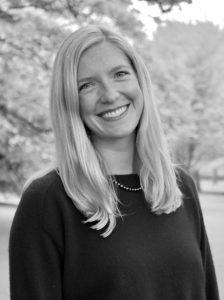I started my PhD expecting to be uplifted and inspired. Very quickly, through conversations with the academic ‘veterans’ in their fourth year or in postdocs, that shifted to expectations of trauma, stress, anxiety, and burnout.
Among many of my third- and fourth-year colleagues I quizzed on their experiences, I sensed a deep underlying fatigue, a brittle edge to their reminiscences. With many, their stories from ‘the field’ were peppered with bravado. On one memorable night, while sitting around the pub table with some male fourth-year PhDs and postdocs, one of them shared a story about how he refused to pay a bribe to an official in an African country and was held in prison for eight hours.
“Eight hours?” scoffed the guy next to him, “That’s nothing. When I was doing research, I sat in a jail cell once for three days.” The conversation then turned into a proverbial pissing contest, each one-upping each other with increasingly-harrowing tales of imprisonment, being held at gun-point, and bribing their way out of harm’s way. I nursed my gin and tonic while feeling a mixture of bemusement and horror. Was this going to happen to me when I went on fieldwork? And at what cost? Beyond the physical risks, I was hearing stories from many of my colleagues of PTSD, depression, anxiety, and burnout. Seeing the spectrum of emotional responses and wellness levels among my fellow researchers left me wondering, and worrying, about my own mental state going into the PhD. “I hate the PhD process,” one girl nearing her viva told me. “I’ve burnt out more times than I can remember. Just wait, you’ll see.” Needless to say, I was nervous. She made it seem like it was an inevitability, rather than a possibility.
Academia does hold unique challenges—tough job markets, isolation, financial burdens, family demands, a long work hours culture, isolation (all compounded by the COVID-19 pandemic), and potentially volatile research sites.
These are unfortunate realities. Yet I feel there is a precarious balance between being vocal of the challenges of undertaking a PhD and perpetuating a narrative of hardship. There is an important difference between being honest about emotional and psychological distress, and glamourising it. Casual responses to admissions of grief promote a sort of rite of passage; ‘so you’ve had an anxiety attack, welcome to the team!’. Once, when I told a (female) faculty member that I had been sexually harassed repeatedly in the field, I was met only with a nodding grimace and “Yup. Same here.” I was part of the club, apparently.
I wish I could travel back in time to that pub I sat in four years ago. I would tell first-year-me that she would hear many more stories of machismo that glamorized high-stress situations. And that, ironically, while nearly everyone had their own negative stories to tell, these experiences would often be overlooked by faculty and university administration.
I can’t go back in time, but I can hopefully be a positive role model for the next generation of PhDs just starting on their own journeys. I want to change the narrative. I want us to be open and honest about the many realities of doing a PhD—the good, the bad, and the ugly. At the same time, we need to be wary about how we are framing these experiences. Because narratives shape our perceptions and expectations. If we begin glamourising difficult experiences and pitching them as a rite of passage, then we are perpetuating an unhealthy narrative of the ‘inherently’ difficult field of academia. And in doing so, we miss the opportunity to challenge the wider structural flaws that fail to support researchers’ wellbeing in the first place.
Tags
About the author

